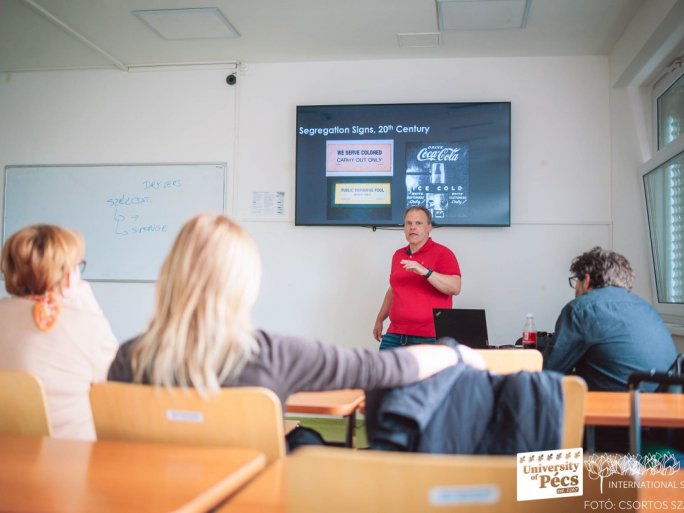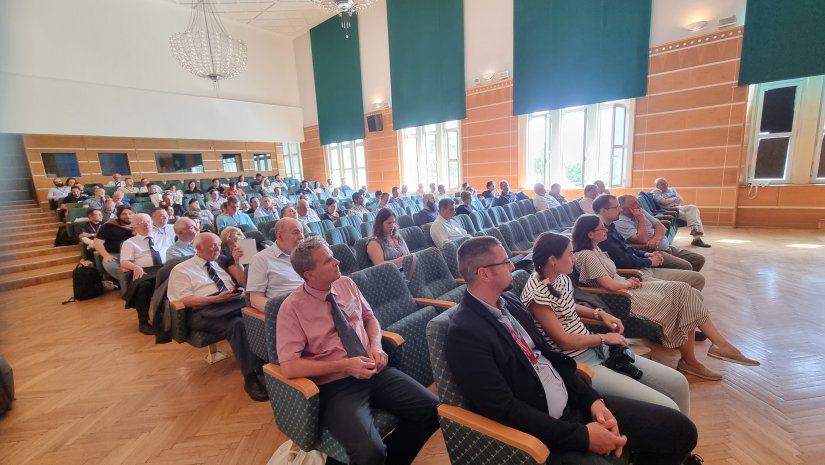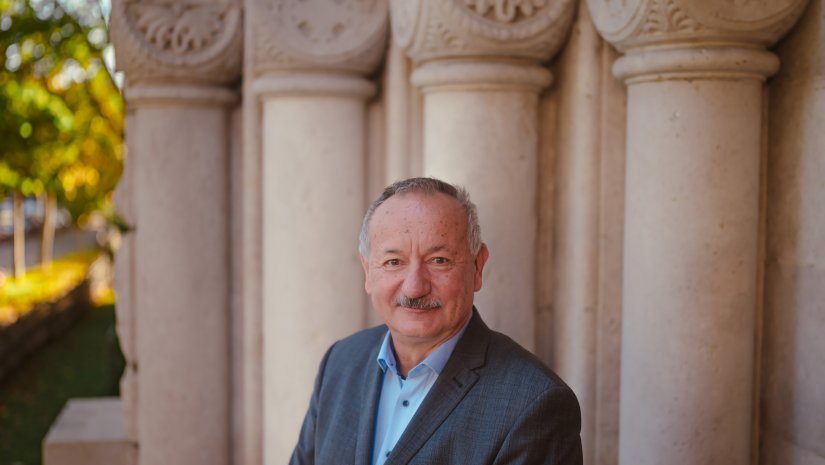In a thought-provoking lecture, within the framework of the International Seasons intercultural event series, Professor Chris Danielson (Montana Technological University) delved into the intricate relationship between race and politics in American society. Drawing from his extensive expertise in American history and politics, particularly the civil rights movement, Professor Danielson shed light on the evolution of racial appeals in politics and their implications for contemporary society. Following the lecture, an exclusive interview provided further insight into his perspectives on racial dynamics in America, as well as his experiences as a Fulbright Scholar at the University of Pécs.

Exploring the Evolution of Racial Appeals
Professor Danielson began his lecture by elucidating the concept of „dog whistles" in political discourse, highlighting how subtle, racially coded language has evolved over time. „Dog whistles are subtle cues or messages that are often used to appeal to certain groups without explicitly stating the intended message" - Professor Danielson explained. „They can take the form of coded language or symbols that resonate with particular racial or ethnic biases." He emphasized the shift towards more overt racial appeals in recent years, attributing this phenomenon to various factors, including the undemocratic nature of the American political system.
Lessons from History
Reflecting on the parallels between the current state of racial politics and the era of the 1960s, Professor Danielson underscored the importance of drawing lessons from history to address contemporary racial divisions.
„The civil rights movement of the 1960s was a pivotal moment in American history, but the struggle for racial equality is far from over." - he stated.
He emphasized the need for vigilance in protecting hard-won gains from the civil rights movement, warning against complacency in the face of ongoing challenges to voting rights and racial equality. The lectuer provided historical context by discussing key events such as the passage of the Civil Rights Act of 1964 and the Voting Rights Act of 1965, highlighting their significance in advancing racial equality in America.
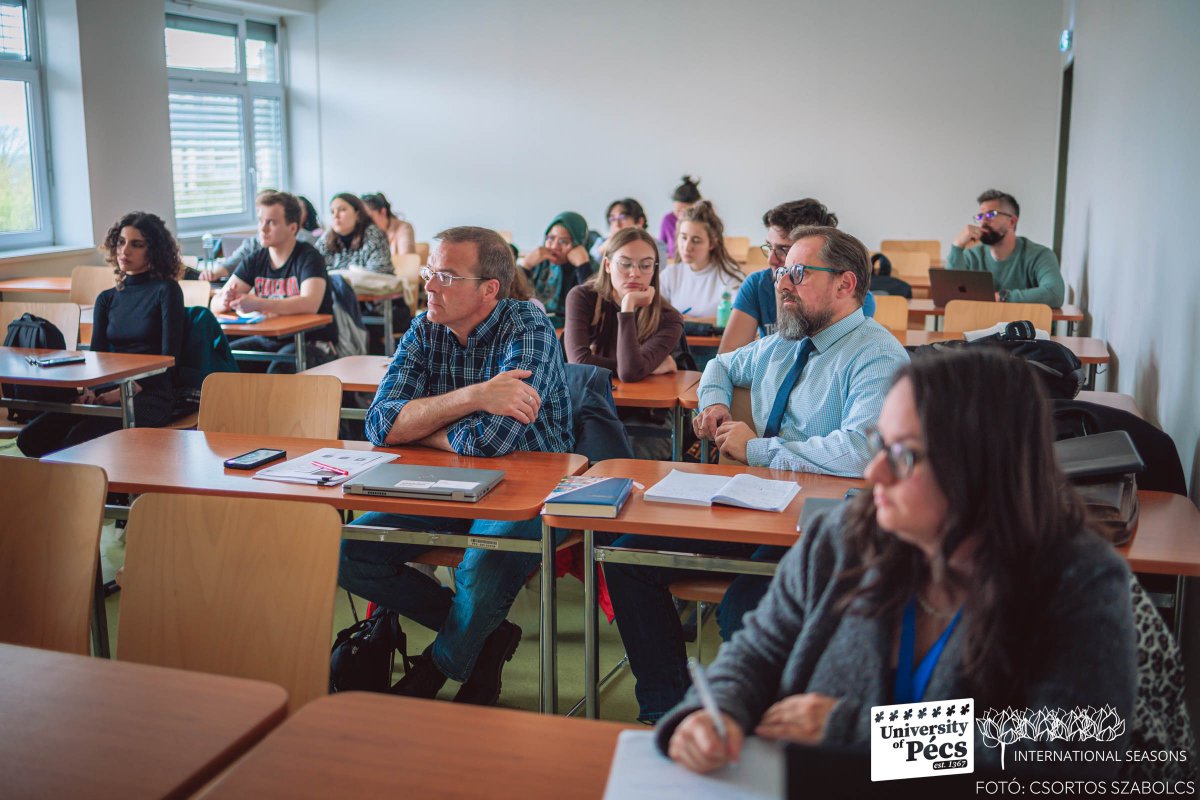
Professor Danielson emphasized the importance of understanding the historical context of racial politics in America, particularly the legacy of white supremacy and racial oppression. „It's crucial to keep talking about it," - he emphasized. „The history of white supremacy and racial oppression runs deep in America, shaping the country's social, political, and economic landscape."
From the era of slavery to the Jim Crow laws and beyond, systemic racism has been ingrained in American society, perpetuating inequalities and injustices for generations.
„Diversity is not just a buzzword; it's a fundamental aspect of American identity,"- Professor Danielson remarked.
He referenced the 1988 presidential election, where race played a prominent role. „During Michael Dukakis's campaign against George H.W. Bush, the infamous 'Willy Horton ads' exploited racial fears and stereotypes," - Professor Danielson noted. „These ads, which portrayed Horton, an African American man, as a criminal, underscored the persistent use of racially charged appeals in American politics."
„The Willy Horton ad and the use of racially charged ads in political campaigns are stark reminders of the enduring legacy of racism in American politics," - he said. „By studying these historical injustices and engaging in critical dialogue, we can work towards a more just and equitable society."
He noted the shift towards more overt forms of racism in recent years, citing examples such as Trump's characterization of COVID-19 as the „China virus" and his refusal to condemn white supremacist groups. „Trump's rhetoric has fueled xenophobia and anti-Asian sentiment.These actions have further polarized an already deeply divided nation." - he observed. „They reflect not only the persistence of racism but also the willingness of political leaders to exploit racial tensions for their own gain."
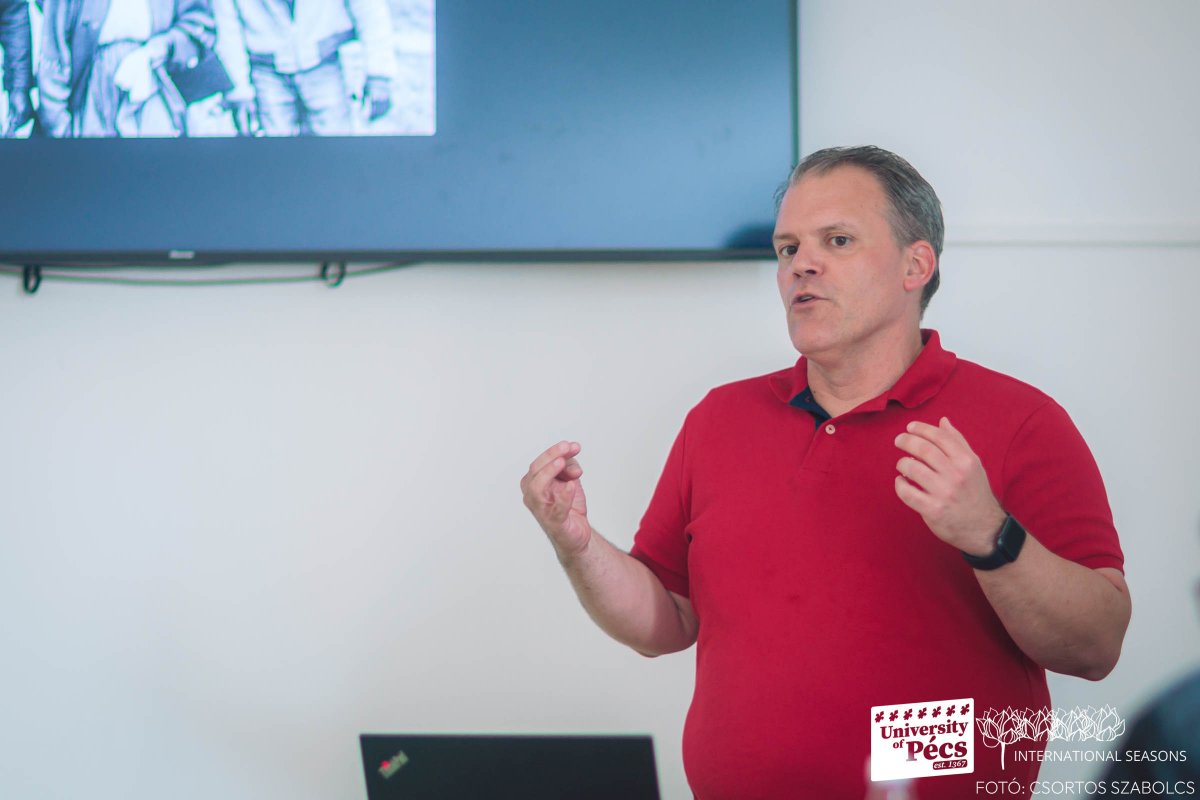
Legacy of the Civil Rights Movement
Drawing from his research on the civil rights movement, Professor Danielson discussed its lasting legacy in shaping contemporary political dynamics, both in the South and across the nation. „The civil rights movement laid the groundwork for progress, but there's still work to be done." - he stated. He highlighted the ongoing struggle for racial equality and the importance of continuing efforts to combat systemic racism and discrimination. „The legacy of the civil rights movement serves as a reminder of the power of grassroots activism and collective action." - Professor Danielson reflected.
He emphasized the importance of confronting uncomfortable truths about America's history of racial oppression and engaging in meaningful dialogue to challenge ingrained prejudices.
„Keep talking about the history of white supremacy and racial oppression. Keep talking about diversity. Not talking about it is what they want you to do."
Insights from International Perspectives
As a Fulbright Scholar based at the University of Pécs, he discussed his experiences in Hungary and reflected on the similarities and differences in political climates, offering comparative perspectives on racial issues. He highlighted the changing demographic landscape in Europe, noting the emergence of substantial non-white populations. „You're only just now beginning to hear about it in Hungary and in Europe elsewhere.” - he observes. He predicts that Europe may experience racist backlashes similar to those seen in America, reflecting a global trend towards xenophobia and nativism.
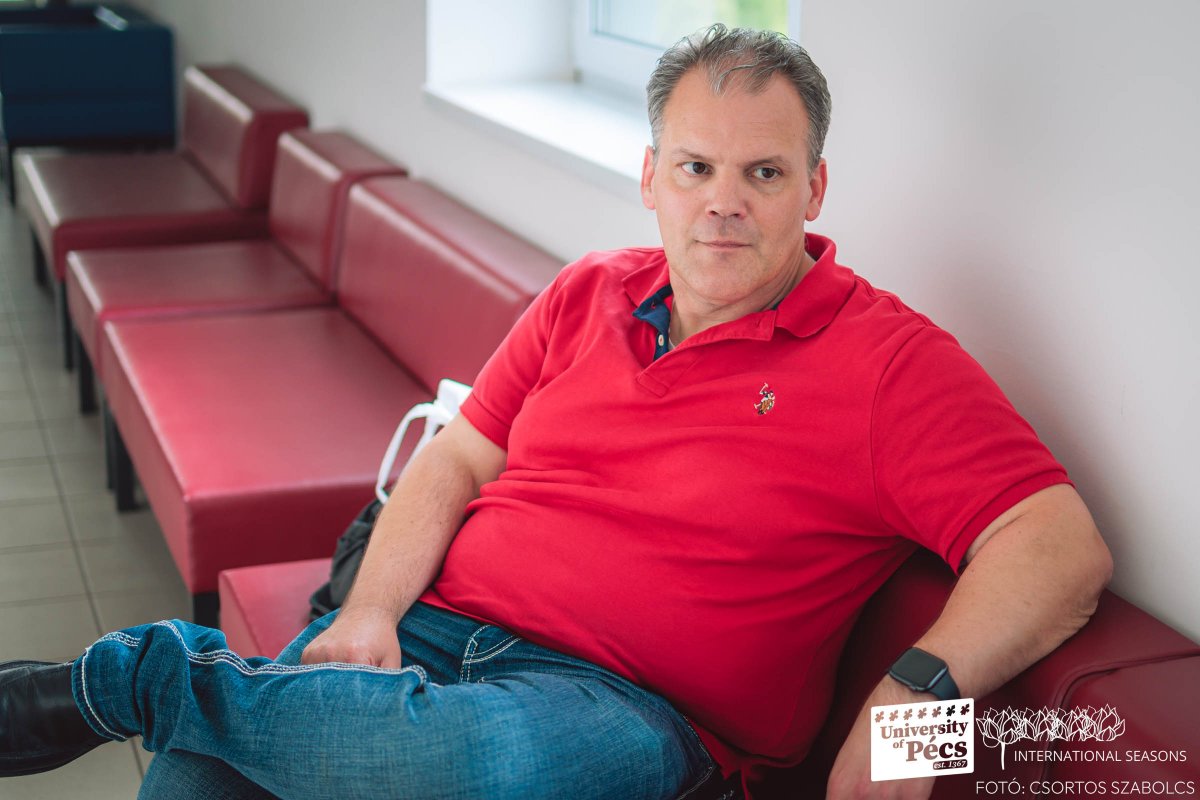
When asked about his time at the University of Pécs, Danielson spoke fondly of his experiences engaging with students and scholars from diverse backgrounds. Sharing his experiences teaching in Hungary, Professor Danielson notes the differences in student behavior and academic culture. „Students are a lot more respectful." - he remarks, highlighting the positive aspects of Hungarian university culture compared to the consumer-driven mentality of American academia.
Offering advice to future generations, Professor Danielson echoes the words of Frederick Douglass:
„Agitate. Agitate. Agitate."
He underscores the importance of challenging injustice and advocating for meaningful change, both within academia and society at large.
Professor Danielson's lecture offered a nuanced exploration of the intersection of race and politics, providing valuable insights into contemporary challenges and opportunities for promoting racial equity and social justice. As a Fullbright scholar at the University of Pécs he continues to foster academic discourse and international collaboration, his contributions serve as a testament to the importance of engaging with diverse perspectives to address pressing societal issues.


